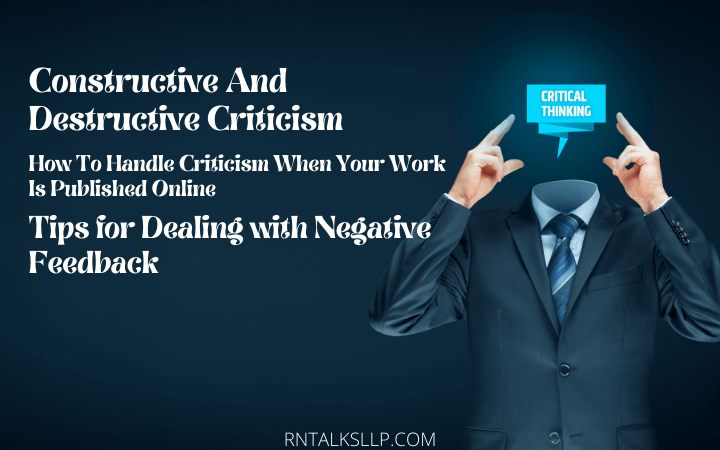Every purchase made through our affiliate links earns us a pro-rated commission without any additional cost to you. Here are more details about our affiliate disclosure.
5 Characteristics of Emotional Intelligence | How Outstanding Performance Differs from Average Performance
Emotional intelligence is a hot topic in the business world these days.
Many people are talking about it and trying to learn more about it because they know that emotional intelligence is essential for success.
But what exactly is emotional intelligence?
Emotional intelligence is a set of abilities that allows people to perceive, understand, and manage their own emotions, and the emotions of others.
And what are the characteristics of emotional intelligence that will help you succeed in life? In this blog post, we will answer those questions and more!

If you’re looking to succeed in life, emotional intelligence is key. Emotional intelligence (EI) is the capacity to be aware of and manage your own emotions, and the emotions of others.
It’s about being able to understand and respond effectively to emotional information. It is generally said to include five characteristics: self-awareness, self-regulation, motivation, empathy, and social skills.
Each of these characteristics can be beneficial in achieving success both professionally and personally.
In this article, we will discuss each of these five characteristics in detail and explore how they can help you succeed in life!
Here are 5 characteristics of emotional intelligence that will help you succeed:
Self-awareness

Self-awareness means knowing your own emotions and how they affect your thoughts and actions.
For emotional intelligence, self-awareness is crucial. You can gain a better understanding of yourself through it, and learn how your emotions affect your thoughts and actions.
Having self-awareness allows you to manage your emotions better and make informed choices.
Self-awareness also allows you to be aware of other people’s emotional states. This is important in both personal and professional relationships.
If you can read other people’s emotions, you can better understand their needs and respond accordingly.
For example, let’s say you’re at a networking event and you meet someone who seems really nervous.
If you’re self-aware, you’ll be able to pick up on their emotional state and put them at ease by starting a conversation and making them feel comfortable.
Self-awareness is a key ingredient in emotional intelligence and can help you succeed both professionally and personally.
Self-regulation

Self-regulation means being able to control your emotions, rather than letting them control you.
Self-regulation is the ability to control your emotions, rather than letting them control you.
When you can self-regulate, you are less likely to let your emotions get the best of you. You’re able to think before you act and make choices that are in line with your goals.
For example, let’s say you’re in a meeting and your boss makes a comment that you disagree with.
If you can self-regulate, you’ll be able to keep your emotions in check and respond in a way that is respectful and professional.
Self-regulation is an indispensable part of emotional intelligence and can enable you to excel both professionally and individually.
Motivation

Motivation means having a desire to achieve personal goals and be successful.
Motivation is a desire to achieve personal goals and be successful. When you are motivated, it will be easier for you to put in the hard work that is inevitably required to achieve your goals.
For example, let’s say you’re working on a project that is due in two weeks. If you’re motivated, you’ll be more likely to put in the extra hours needed to get the project done on time.
Motivation is an important part of emotional intelligence and can help you succeed both professionally and personally.
Empathy

Empathy means understanding the feelings of others and taking them into account when making decisions
The fourth characteristic of emotional intelligence is empathy. Empathy is the ability to understand and share the feelings of others.
When you are empathetic, you take into account the emotional states of those around you when making decisions.
For example, let’s say you’re in a meeting and someone suggests an idea that you think is terrible.
If you’re empathetic, you’ll be able to see things from their perspective and understand why they think the idea is a good one.
Although you may not agree with them, you are able to see things from their perspective and understand their emotional state.
Empathy is an intrinsic part of emotional intelligence and can help you succeed both professionally and personally.
Social Skills

Social skills mean being able to effectively interact with other people, both individually and in groups.
The fifth characteristic of emotional intelligence is social skills. Social skills are the ability to effectively interact with other people, both individually and in groups.
When you have strong social skills, you’re able to build relationships and work effectively with others.
For example, let’s say you’re in a meeting and there’s someone who always interrupts you.
If you have strong social skills, you’ll be able to handle the situation in a way that is respectful and professional.
Social skills are an integral part of emotional intelligence and can help you succeed both professionally and personally.
Conclusion of Emotional Intelligence

Emotional intelligence is an important tool that can help you succeed both professionally and personally.
By being aware of your own emotions and the emotions of those around you, it will be easier to make decisions that are in line with your goals.
Additionally, self-regulation, motivation, empathy, and social skills are all important aspects of emotional intelligence that can help you succeed.
If you are passionate about attaining success in life, emotional intelligence is a vital component.
Do you want to learn more about emotional intelligence? Check out our blog for more articles on the topic. Thanks for reading!
➤ You Might Like To Read:
- What is Personal Development?
- Developing a Personal Vision: Defining Success
- Elements And Goals Of Self-Motivation
- How To Do Personal SWOT Analysis | SWOT Analysis Process
- Power and Dimensions of Personal Empowerment
- Respond Rather Than React
- 13 Ways To Develop A More Vibrant Personality
- How Does The Locus of Control Affect Your Life
- What is Zohnerism Parody | How Not To Be a Victim Of Zohnerism Parody
- Positive Reinforcement: Learn Skill From Google Maps
- Constructive And Destructive Criticism | How To Handle Criticism When Your Work Is Published Online | Tips for Dealing with Negative Feedback
- What Is Child Psychology And Why Is It Important



![Result And Report of GenOrators, Season-3 [International Public Speaking Contest]](https://rntalksllp.com/wp-content/uploads/2022/08/Result-And-Report-of-GenOrators-Season-3-International-Public-Speaking-Contest-1.png)



